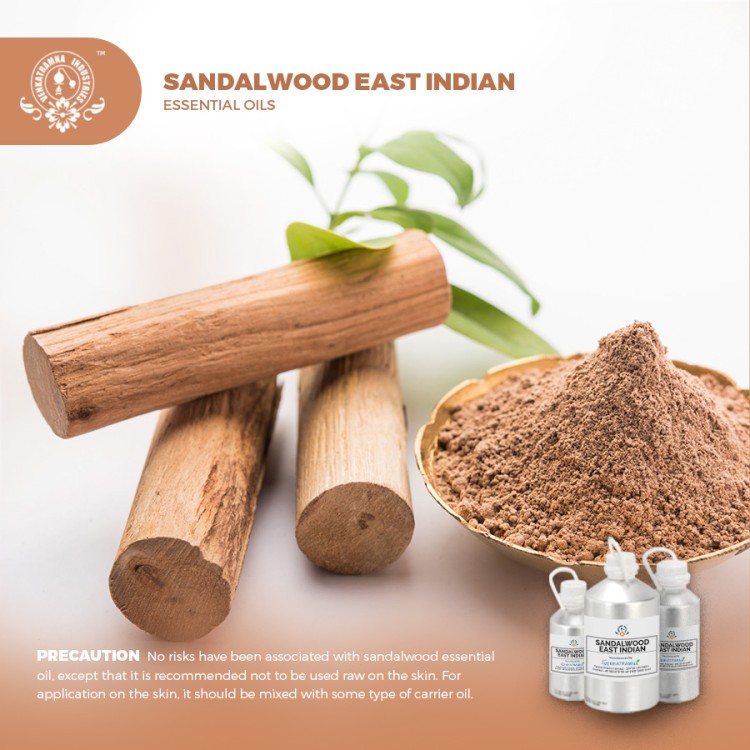
The essential oil of sandalwood is a wonderful antiseptic agent. It is safe for both internal and external applications. When ingested, it helps to protect internal wounds and ulcers from infections. Similarly, when applied to the skin, it protects wounds, sores, boils, and pimples from developing infections or from becoming septic.
Being antimicrobial, sandalwood oil is also used as an effective antiseptic agent. It is used topically to prevent injuries, lesions, boils, blemishes, etc. from getting infected or gangrenous.
Apart from the external applications, this sandalwood oil can also be used internally. Add a few drops of the oil to a glass of warm milk and drink it. Regular consumption of this mixture provides protection from ulcer as well as infections developed in the throat, gullet, digestive tracts and renal tracts.
The essential oil of sandalwood is extracted through steam distillation of pieces of wood from matured Sandalwood trees which are 40-80 years old, although 80 years is preferred. The older the tree, the more oil is available, and the aroma is stronger. The main constituents of the essential oil of sandalwood are Beta Santalol, Santyl Acetate, and Santalenes.
The health benefits of Sandalwood essential oil can be attributed to its properties as an antiseptic, anti-inflammatory, antiphlogistic, antispasmodic, astringent, cicatrisant, carminative, diuretic, disinfectant, emollient, expectorant, hypotensive, memory booster, sedative, and a tonic substance.
Nutritional Value of Sandalwood Oil
Pure sandalwood contains a wide verity of compounds that help in the removal of infection from the body. Sandalwood oil is also commonly used as a flavoring agent in foods. In China and some other parts of the globe, sandalwood oil is used for medicinal purposes. It is recommended and strictly advised that you consume sandalwood oil medications only after discussing it with your doctor.
Sandalwood aromatherapy can be used to treat stress-related disorders. Sandalwood oil is also very healthy for your skin and can be used to treat various skin conditions including dryness, eczema, itchiness, and rashes.
Sandalwood has pheromone-like properties and is therefore used in manufacturing perfumes and deodorants. Sandalwood oil can also be used as an aphrodisiac. Sandalwood can also be used as a deodorant and can be blended with other essential oils to make different fragrances.
Uses of Sandalwood Oil
Due to its relaxing and anti-inflammatory properties of sandalwood oil, it soothes inflammation in the urinary system and induces relaxation, thereby promoting the easy passage of urine. It also increases the frequency and quantity of urination. Sandalwood oil helps in treating infections and inflammation in the urinary system because it flushes out dangerous toxins through the urine. Thus it works as a wonderful diuretic.
Cultivation of Sandalwood Oil
Sandalwood originated in India but is also found in Australia and in Hawaii. Sandalwood oil has been used since over 4,000 years ago, making it among the oldest-known materials used for its exotic scent. It has found its way into fragrances, cosmetics and personal care products and meditative/spiritual practices.
Sandalwood essential oil is extracted through steam distillation of pieces of wood from matured sandalwood trees that are 40 to 80 years old.3 Eighty years is preferred because, the older the tree, the more oil available and the stronger the aroma. Heart wood, bark and essential oil are the main parts being used in sandalwood cultivation. It is grown in plantations due to its near-extinction status.

|

|
Currently, there are no comment.
Login to comment